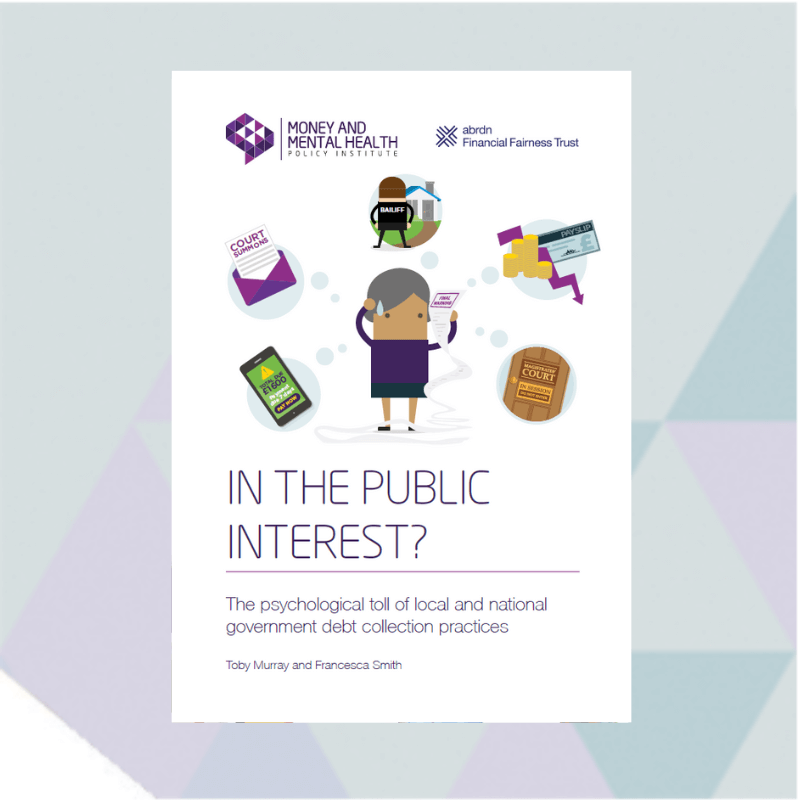Toby Murray, Senior Research Officer, and Francesca Smith, Research Officer, Money and Mental Health Policy Institute
In the public interest?
The psychological toll of local and national government debt collection practices.
This report (which is funded by abrdn Financial Fairness Trust) looks at the psychological harms caused by public sector debt collection practices, particularly for those with mental health problems.
It shows that 6.2 million people across the UK are behind on payments owed to national or local government, such as council tax, and that people with mental health problems are more than twice as likely to be behind on council tax payments as those without such conditions.
Public sector debts escalate rapidly, leading to spiralling costs and legal action. One missed council tax payment can lead to a demand for the full annual council tax bill (averaging £1,668) after just three weeks.
The use of enforcement agents often leave people feeling terrified, powerless and alone – which is especially concerning given 73% of people in council tax arrears who were referred to a bailiff have experienced a mental health problem.
This is causing unnecessary distress for those least able to pay and pushes people away from engaging with repayments, creating a lose-lose situation.
Key Recommendations
The government should:
- Change the regulations on councils’ collection practices to ensure people are given more time before they are required to pay an annual council tax bill.
- Undertake an immediate review of local government finances, with a view to reinstating adequate funding levels for local authorities.
- Cap how much councils can charge people for being issued a liability order when they fall behind on council tax payments.
Local authorities and public sector creditors should:
- Get ahead of the government, by implementing recommendations themselves and raising the standards for debt collection across the board. Local authorities including Bristol City Council and Manchester City Council are already leading the way on this by moving away from the use of enforcement agents to collect council tax arrears.
This research has informed our campaign to end the Council Tax Trap. Sign the petition today.
abrdn Financial Fairness Trust has supported this project as part of its mission to contribute towards strategic change which improves financial well-being in the UK. The Trust funds research, policy work and campaigning activities to tackle financial problems and improve living standards for people on low-to-middle incomes in the UK. It is an independent charitable foundation registered in Scotland (SC040877).

